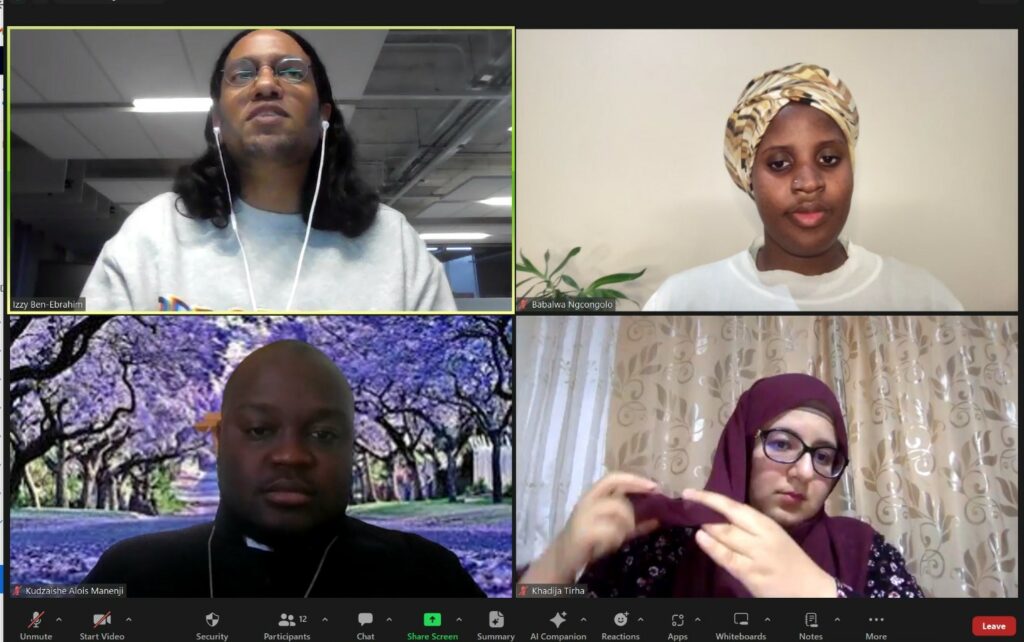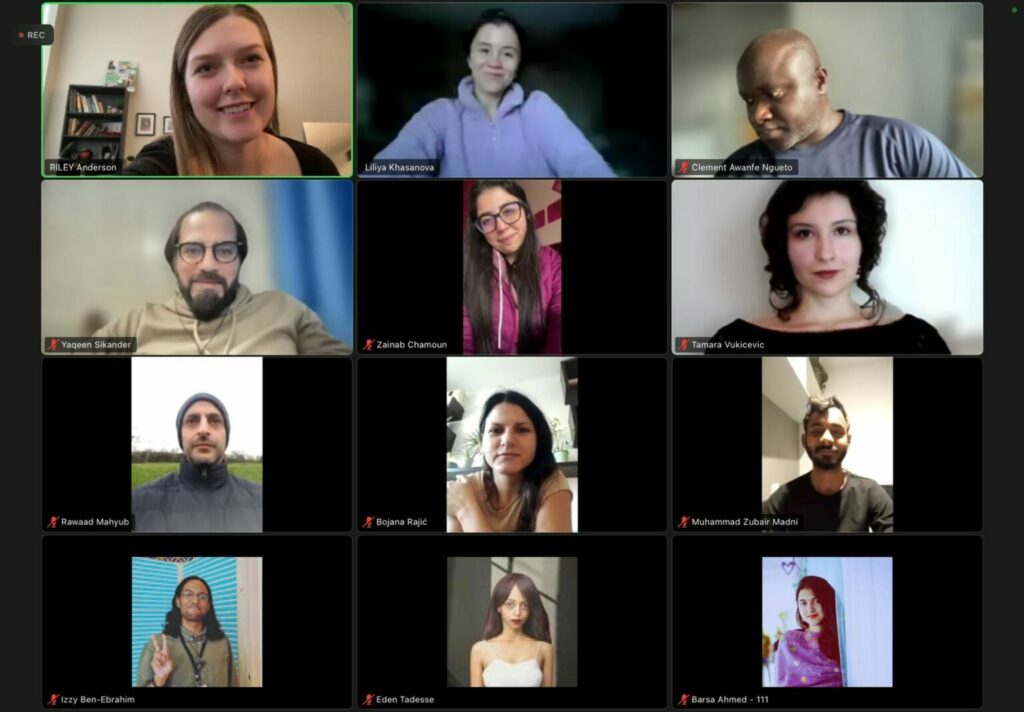ACWAY Fellow Talks is a fellow-designed and fellow-led initiative that was launched in January 2020 to promote collaboration and virtual community amongst ACWAY Fellows in between in-person gatherings.
After attending forums and training, ACWAY Fellows are often buzzing with motivation and new ideas. During the implementation of their activities, they wonder “Now what?” ACWAY Fellow Talks is an easily accessible opportunity for fellows around the world to be part of a growing, inclusive interfaith community. These video chats will include skill-building portions on highly requested topics, as well as a space for ACWAY Fellows to share their projects.

The conversation facilitated by Izzy ben Ebharim (ACWAY) and kicked off by Babalwa Ngcongolo (Ubuntu Festival), delved into the essence of Ubuntu within various communities across the African continent and its significance in interfaith endeavours. Babalwa, from South Africa, highlighted Ubuntu as a deeply ingrained cultural concept emphasizing mutual care, respect, and responsibility toward others, the environment, and oneself. She stressed its importance in fostering a compassionate community, particularly among the youth, and its critical role in addressing injustices through interfaith dialogues. The Ubuntu Festival that took place in Cape Town this year was noted as a reflection of the concept’s individual journey and commitment to rehumanize society.
Khadija Tihra and Kudzaishe Alois Manenji shared their perspectives, noting the universal values of solidarity, interconnectedness, and inclusion within their work in civil society and the humanitarian sector. Khadija, in Italy, recognized these principles as aligned with Ubuntu, despite the term not being widely known. Kudzaishe, from Zimbabwe, celebrated the community spirit encapsulated in the phrase “I am because we are,” particularly evident in rural areas.
The discussion also covered the influence of these principles on their work, emphasizing solidarity, voluntarism, and the desire for acceptance and integration within Italian society as key drivers for Khadija. Kudzaishe underscored his identity and approach to work as being human first, beyond religious labels.
Advice for aspiring interfaith practitioners and social justice advocates included remaining curious about others to build meaningful relationships, patience, hard work, seeking and providing mentorship, and cultivating kindness.

Mental Health in Interfaith Spaces
4 February 2024 (UN World Interfaith Harmony Week)
Reverend Kudzaishe, ACWAY fellow from Zimbabwe, spoke about the detrimental effects of toxic masculinity in Zimbabwe. In this context, societal expectations place a significant burden on men, discouraging them from expressing emotions, particularly during times of grief. Men are pressured to conform to traditional roles as family leaders and primary breadwinners, leading to mental health issues, including a high prevalence of suicidal ideation. Reverend Kudzaishe emphasized the urgent need to create safe spaces for men to share their struggles and advocated for challenging and debunking gender roles. The call extends to decampaigning the notion of specific roles for men and women, encouraging individuals to pursue their passions irrespective of societal expectations. The passage also acknowledges that women, too, have been conditioned to adhere to specific roles, emphasizing the importance of collective efforts to combat these deeply ingrained gender stereotypes.
Tamara Vukicevic from Croatia spoke about the intricacies of coping without relying on God. She shared a compelling story about pre-surgery coping, highlighting the personal, individual, cultural, (un)religious, and (un)healthy dimensions of coping mechanisms. Tamara emphasized the importance of a judgment-free and stigma-free approach to coping. The discussion delved into the question of whether atheists experience better mental health than their religious counterparts, revealing varying responses and noting the challenge of conclusive research due to numerous variables. Tamara acknowledged that people do not easily abandon their convictions, referencing the aphorism “There are no atheists in foxholes” to illustrate how extreme stress or fear can prompt belief in a higher power. Ultimately, the conversation underscored that coping is less about religious beliefs and more about mental well-being.
Dr. Yaqeen Sikander spoke about the intersection of religion and mental health, emphasizing its profound impact. Studies suggest a preference for individuals to seek therapy from therapists of the same/similar positionality, reflecting the influence of cultural norms. There exists a stigma attached to seeking therapy, and Dr. Yaqeen discussed how colonialism has played a role in shaping mental health perceptions. The conversation shifted to TIIP (Traditional Islamic Integrated Psychotherapy), which is evidence-based and focuses on understanding the nature of human beings and mechanisms of change. Dr. Yaqeen pondered on the challenge of bringing individuals back to the golden mean, emphasizing the concept of Ittihad as a means to achieve balance.

